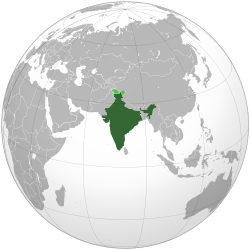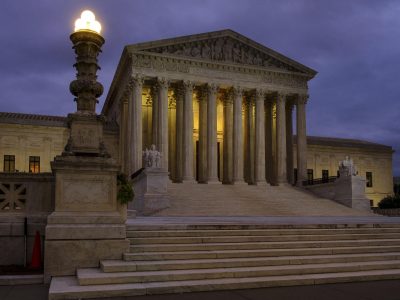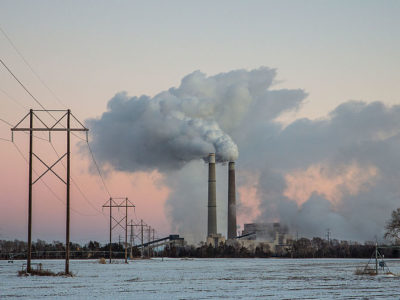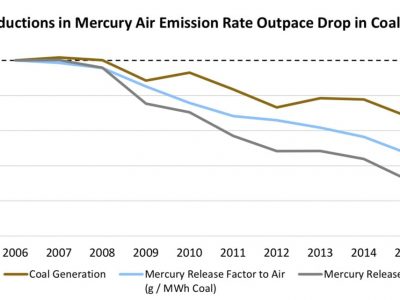Energy
South Korea and Climate Change
A small country, but a significant carbon emitter.
Little known fact: The ninth largest carbon emitter in the world is South Korea. What is South Korea doing to cut its emissions? That answer, in brief, is that it has adopted the right kinds of policies, but may need to up its level of ambition. Even so, it compares favorably with the national governments …
Continue reading “South Korea and Climate Change”
CONTINUE READINGClimate Policy in India
What’s Happening in the World’s Second Largest Country?
India is home to 1.39 billion people, just below China but growing faster. By some projections, it will have the second largest economy in the world by 2050. In terms of climate policy, however, it doesn’t get nearly as much attention as China. That’s understandable in terms of India’s current carbon emissions, which are now …
Continue reading “Climate Policy in India”
CONTINUE READINGWill public power advance decarbonization?
Increasing public control of energy systems may not facilitate decarbonization
Over the past few years, there has been a push in both Europe and the United States for a “Green New Deal” in which decarbonization efforts would be pushed by aggressive, direct government investments in clean energy technology and infrastructure. But in much of the United States and in Europe, large portions of the electricity …
Continue reading “Will public power advance decarbonization?”
CONTINUE READINGSubnational Climate Action in the UK
As in the U.S., it’s not all about the national government. Not by any means.
Last week, I posted about the British government’s climate policy. In sharp contrast with their American counterparts, British conservatives remain firmly behind the Paris Agreement and supportive of cap-and-trade. In another respect, though, there’s more similarity: in both countries, subnational governments play a key role in climate policy. Here’s what’s happening across Great Britain. Regional …
Continue reading “Subnational Climate Action in the UK”
CONTINUE READINGConservatives Who Support Climate Action
No, not here. The British Tories.
There is continuing conservative support for climate action. Not so much here, of course, but in the UK. The British government is firmly in the grip of the Conservative Party. Prime Minister Boris Johnson is no Donald Trump, but he does have at least a whiff of Trumpiness about him. Like the GOP, the Tories …
Continue reading “Conservatives Who Support Climate Action”
CONTINUE READINGAfter the Court Rules: Gaming out Responses to a Cutback in EPA Authority
The Supreme Court is almost certain to cut back on EPA’s power to regulate greenhouse gases. What then?
In West Virginia v. EPA, the Supreme Court is reviewing Obama’s Clean Power Plan. The Clean Power Plan (CPP) itself no longer has any practical relevance, but there’s every reason to predict the Court will strike it down anyway. The ruling will also restrict EPA’s future options. The big question is what the Biden Administration …
Continue reading “After the Court Rules: Gaming out Responses to a Cutback in EPA Authority”
CONTINUE READINGWhy Are Big Utilities Planning to Cut Carbon?
The top ten utilities have set goals for emissions reduction. It’s less clear what’s driving them.
As my post on Monday indicated, the top ten utilities have all announced plans for cutting carbon in the next several decades. Some of these utilities, like PG&E or ConEd, operate in states that have ambitious climate policies. It’s easy to see why utilities in New York or California would be setting their own targets. …
Continue reading “Why Are Big Utilities Planning to Cut Carbon?”
CONTINUE READINGEmissions by the Big Utilities: Where They Are, What They’re Aiming For
Almost all the top ten utilities are big emitters today but looking to cut back.
There’s a lot of discussion of how the private sector is supporting renewable energy, but it’s almost all about power consumers like Apple and Walmart. But what about the companies who are selling the power? As a first step to getting a better sense of where the utility industry is going, we accumulated some basic …
Continue reading “Emissions by the Big Utilities: Where They Are, What They’re Aiming For”
CONTINUE READING(Mis)Estimating Regulatory Costs
EPA’s cost estimate for its mercury rule was way, way off.
In describing cost-benefit analysis to students, I’ve often told them that the “cost” side of the equation is pretty simple. And it does seem simple: just get some engineers to figure out how industry can comply and run some spreadsheets of the costs. But this seemingly simple calculation turns out to be riddled with uncertainties, …
Continue reading “(Mis)Estimating Regulatory Costs”
CONTINUE READINGBreaking Up with Fossil Fuels
It’s not us. It’s you.
WORLD: Thanks for the card. . . . But I think we need to talk. FOSSIL FUEL INDUSTRY: About what? W: About us. FFI: About us?? Can’t it wait until some other time? This is Valentine’s Day, and I’ve made plans for us. Big plans. W: The pandemic has given me a lot of time …
Continue reading “Breaking Up with Fossil Fuels”
CONTINUE READING












